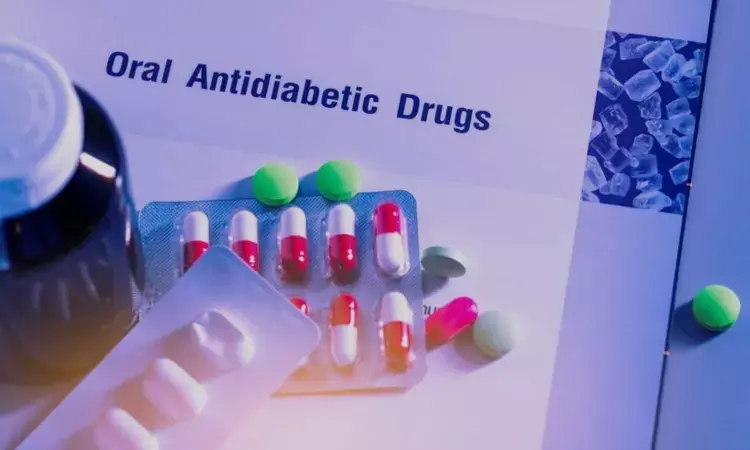- Home
- Medical news & Guidelines
- Anesthesiology
- Cardiology and CTVS
- Critical Care
- Dentistry
- Dermatology
- Diabetes and Endocrinology
- ENT
- Gastroenterology
- Medicine
- Nephrology
- Neurology
- Obstretics-Gynaecology
- Oncology
- Ophthalmology
- Orthopaedics
- Pediatrics-Neonatology
- Psychiatry
- Pulmonology
- Radiology
- Surgery
- Urology
- Laboratory Medicine
- Diet
- Nursing
- Paramedical
- Physiotherapy
- Health news
- Fact Check
- Bone Health Fact Check
- Brain Health Fact Check
- Cancer Related Fact Check
- Child Care Fact Check
- Dental and oral health fact check
- Diabetes and metabolic health fact check
- Diet and Nutrition Fact Check
- Eye and ENT Care Fact Check
- Fitness fact check
- Gut health fact check
- Heart health fact check
- Kidney health fact check
- Medical education fact check
- Men's health fact check
- Respiratory fact check
- Skin and hair care fact check
- Vaccine and Immunization fact check
- Women's health fact check
- AYUSH
- State News
- Andaman and Nicobar Islands
- Andhra Pradesh
- Arunachal Pradesh
- Assam
- Bihar
- Chandigarh
- Chattisgarh
- Dadra and Nagar Haveli
- Daman and Diu
- Delhi
- Goa
- Gujarat
- Haryana
- Himachal Pradesh
- Jammu & Kashmir
- Jharkhand
- Karnataka
- Kerala
- Ladakh
- Lakshadweep
- Madhya Pradesh
- Maharashtra
- Manipur
- Meghalaya
- Mizoram
- Nagaland
- Odisha
- Puducherry
- Punjab
- Rajasthan
- Sikkim
- Tamil Nadu
- Telangana
- Tripura
- Uttar Pradesh
- Uttrakhand
- West Bengal
- Medical Education
- Industry
Oral Antidiabetic Therapy as Effective as Early Insulinization in Type 2 Diabetes Patients, claims study

Taiwan: Oral antidiabetic therapy is not inferior to early insulinization for managing glycemic control in newly diagnosed type 2 diabetes patients, regardless of their initial HbA1c levels, a recent study has found.
The findings, published in Scientific Reports, support oral therapy as a rational treatment option, even in those with elevated HbA1c at diagnosis.
Type 2 diabetes mellitus (T2DM) is a chronic condition characterized by insulin resistance and relative insulin deficiency. Effective management of blood glucose levels is crucial to mitigate the risk of complications such as cardiovascular disease, neuropathy, and nephropathy. Traditionally, treatment strategies have included oral antidiabetic medications (OADs) and, in some cases, early initiation of insulin therapy.
Against the above background, Yang-Ming Lee, Department of Internal Medicine, Changhua Christian Hospital, Changhua, Taiwan, and colleagues aimed to compare the efficacy of oral antidiabetic therapy to early insulinization on glycemic control among newly diagnosed T2D patients in real-world clinical practice.
For this purpose, the researchers conducted a retrospective cohort study at a medical center in Taiwan analyzing 1256 eligible patients from 2007 to 20177. Propensity score matching ensured that the oral antidiabetic drug (OAD) and early insulinization cohorts comprised well-balanced groups, each consisting of 94 patients. Glycemic outcomes were subsequently evaluated across both cohorts.
The researchers reported the following findings:
- Patients exclusively using OAD showed consistently lower glycated hemoglobin (HbA1c) levels at 3, 12, 24, and 36 months compared to insulin users.
- At later periods, 77.7% of OAD users achieved glycemic control versus 64.9% of insulin users, with a marginally significant difference.
- Subgroup analyses suggested a trend favoring well-controlled diabetes in the OAD group, though not statistically significant.
The findings showed that early initiation of insulin may not yield substantial improvements in glycemic control for newly diagnosed type 2 diabetes patients when compared to using OADs alone. Simply starting insulin early is inadequate; achieving optimal control requires implementing a structured insulin titration protocol and diligent self-monitoring of blood glucose levels.
"Our real-world data support considering oral antidiabetic therapy as a reasonable treatment option for newly diagnosed T2D patients, even those with increased baseline HbA1c levels," the researchers wrote.
"Finally, while this study offers valuable insights from a specific hospital setting, its findings could be influenced by significant limitations. Thus, further investigation is needed to determine the applicability of these findings to other regions in Taiwan or different countries," they concluded.
Reference:
Lee, Y., Lin, P. R., & Sia, H. (2024). Oral antidiabetic therapy versus early insulinization on glycemic control in newly diagnosed type 2 diabetes patients: A retrospective matched cohort study. Scientific Reports, 14(1), 1-9. https://doi.org/10.1038/s41598-024-66468-1
Dr Kamal Kant Kohli-MBBS, DTCD- a chest specialist with more than 30 years of practice and a flair for writing clinical articles, Dr Kamal Kant Kohli joined Medical Dialogues as a Chief Editor of Medical News. Besides writing articles, as an editor, he proofreads and verifies all the medical content published on Medical Dialogues including those coming from journals, studies,medical conferences,guidelines etc. Email: drkohli@medicaldialogues.in. Contact no. 011-43720751


